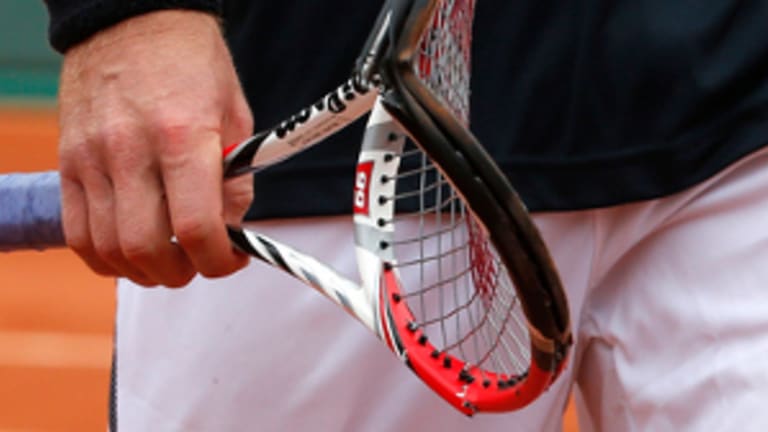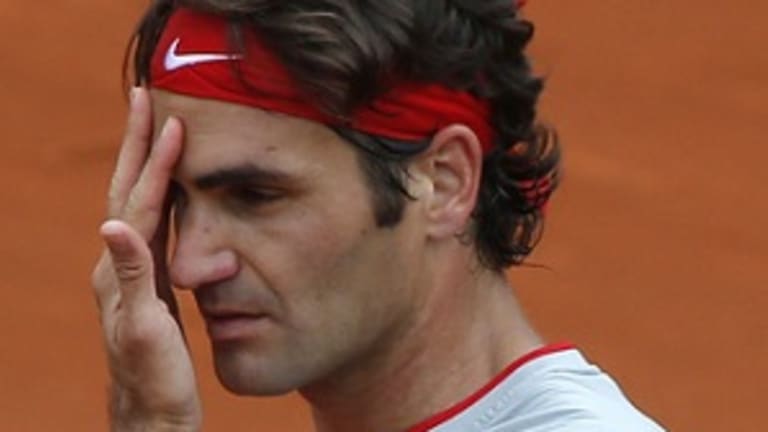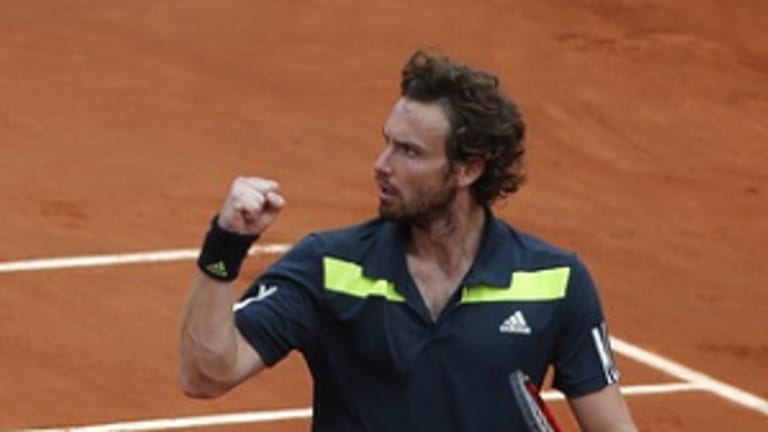In fact, the game plan looked DOA in the second set, which Federer managed to lose after a break gave him a 5-3 lead. It was the darkest period of the match for Gulbis, and he reacted to it by smashing his racquet into something out of a John McEnroe cartoon. Furthermore, he tried to corrupt a child sitting courtside by presenting it to him. Imagine, your very own smashed up Ernests Gulbis Wilson! How much will that be worth, someday?
But lo and behold, the proverbial sun broke through even if the real one would not on this chilly, gloomy afternoon. Gulbis broke back in that second set for 4-5 and held on to force a tiebreaker. He won that by pulling away at 3-all, the key shot an inside-out down-the-line backhand (remember the game plan?) that gave him a critical 5-3 lead.
Letting the set slip away left Federer discombobulated. He would brood, “I had my chances. I was leading 5-4. I was still in the tiebreak. I had some opportunities. And that's where I have regrets. But I think Gulbis, you know, did a good job of hanging around and clearly coming back in that second set was crucial for him.”
In truth, Federer never fully recovered from the way Gulbis pried the match open in the second set, admitting that the third set went by in a blur. And after Federer seemingly regained his equilibrium in the fourth set, he was obliged to deal with an unexpected injury timeout Gulbis took to have work done on a hamstring and lower back.
Federer partisans surely were livid when Gulbis, broken for 2-5, took an injury timeout that lasted about 10 minutes. The crowd rewarded Gulbis with a cascade of boos when he returned, and he added insult to injury by breaking Federer’s serve. But Federer still managed to win the set, and later he insisted, in an almost astonishing show of rationality that not only was the effect of the timeout inconsequential, it bothered Federer not at all that Gulbis took it. Given the choice between terrific liar and remarkably even-keeled guy, I’ll take the latter.
“I came through my career in the beginning where everybody used to take a toilet break at 5-4 when you're serving for the match,” Federer said, denying that he suspected Gulbis of gamesmanship. “Everybody had to run to the bathroom at that point when I was younger...then there was an injury timeout maybe just before that, or right after that, depending on how you used it.
“So now it's like a big deal when a guy goes to the bathroom like on the set breaks. Give me a break. When it's cold like this, you have to go to the toilet. Sometimes when you go deep in a match, you can have treatment because the rule allows you to.”
Gulbis, for his part, explained: “I'm honest, I'm not big on medical timeouts. I don't like to take it, but I take it when it's really necessary. It probably was my third medical timeout in life. I didn't want to take it in the fifth set, so I took it in the end of the fourth.”
When someone suggested that the break left Federer flat, Gulbis added: “I don't like to see it that way. I like to see I went for my shots and I made winners. If you see those two games, I was really aggressive on my return, and I just went for the shots.”


